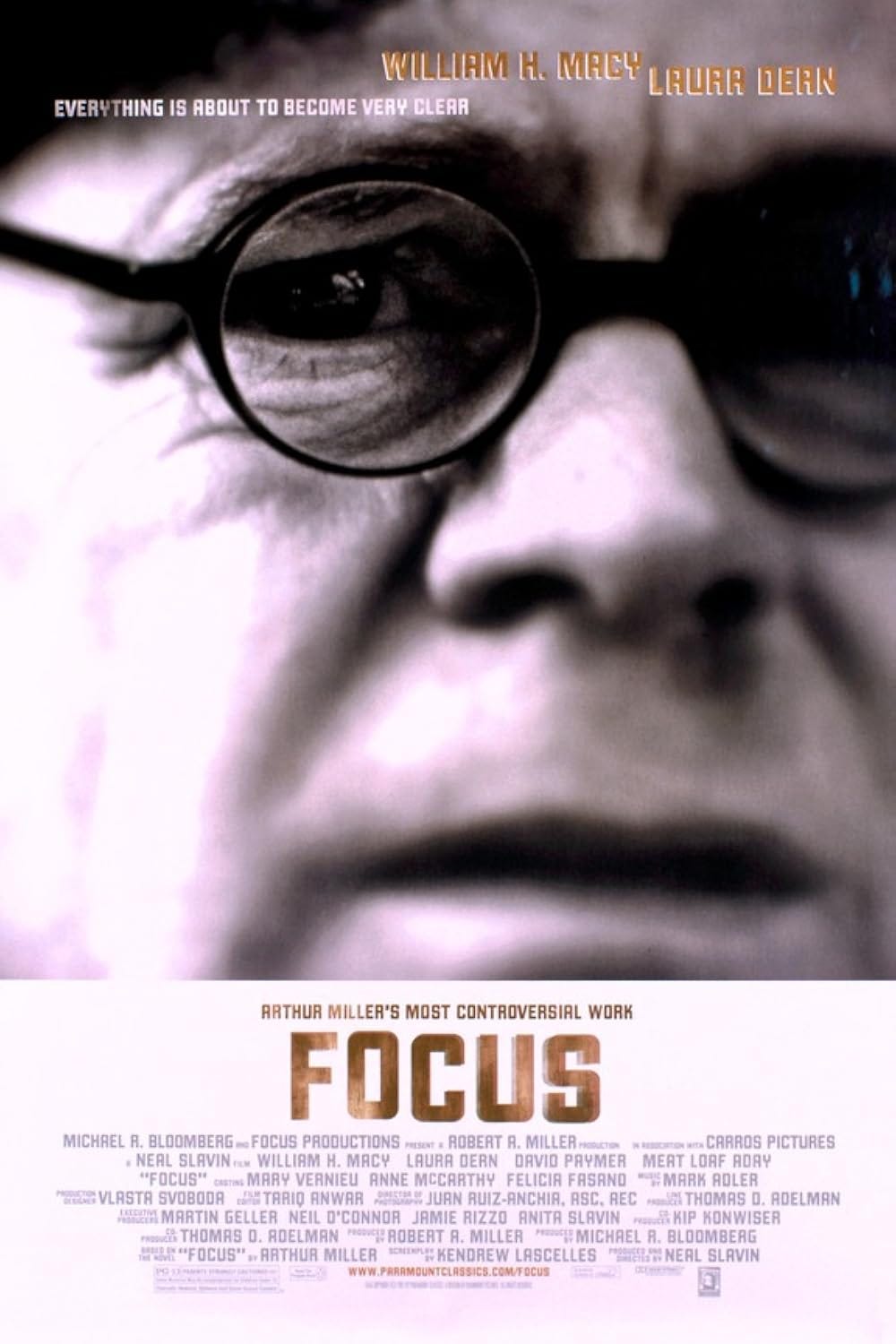Focus - Under Review
Bringing Arthur Miller's only novel to the big screen
Focus (2001)
Adapted from esteemed playwright Arthur Miller’s only novel, Neal Slavin’s debut film address the issue of anti-Semitism in 1940s American.
Juxtaposing the hypocrisy of Americans terrorising Jewish people at home while their servicemen seek to foil the Final Solution overseas isn’t the only irony this engrossing film explores.
Lawrence Newman (William H Macy) is a decent citizen with a indecent dislike of Jews. Sure, he gets on fine with the local shop owner Finkelstein (David Paymer, outstanding) but as Newman’s a good company man and an even better neighbour, and since both his employer and his close friends hate those of the Jewish persuasion, he does, too.
Then Lawrence invests in a pair of specs that make him ‘look Jewish’, and he find himself on the other side of the racial divide. As other forces enter his life - a new woman (Laura Dern), the rise of the extremist group The Union Crusaders, guilt over his failure to report a rape - this meek but likeable man finds himself obliged to take sides. The question is - which army should he join?
William H Macy has been so good for so long, it would be easy to take his excellent work here for granted. Although he never seems to fully buy the anti-Jewish arguments, Newman is still a bigot and yet Macy manages to make us like him and loathe him all at the same time. His fine performance is complemented by magnificent work from Laura Dern which leaves you wondering why this Oscar-winning actress doesn’t make more films
Sadly, Slavin doesn’t always mirror the subtlety of his actors. For the most part a good, naturalistic director, he sadly feels the need to use dialogue to explain the most symbolic moments (the significance of Lawrence’s carousel dreams is spelt out in the screenplay). He could also have worked harder to add a little of Newman’s complexity to the more virulent anti-Semitic characters.
For a first effort, however, Focus is often quite brilliant. Slavin’s eye for detail is impressive, and when he does handle his camera with care as in the pivotal scene between Newman and Finkelstein, he shows that you don’t need special effects to depict truly epic change. Come the final scene, where the bravery of the actors - forced to a cope with an agonisingly long close-up - reflects the courage of their characters, something has passed between actors, director and audience that’s very rarely seen.


